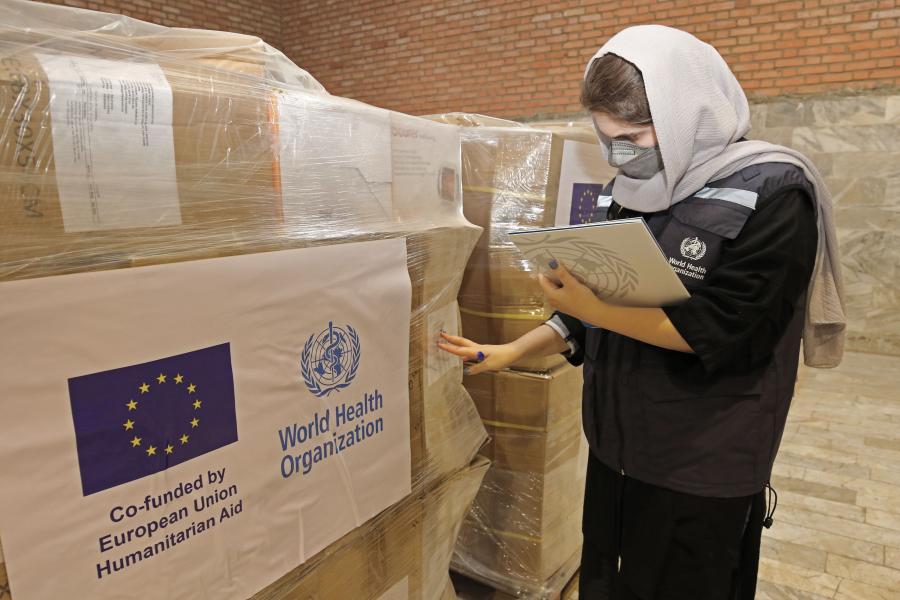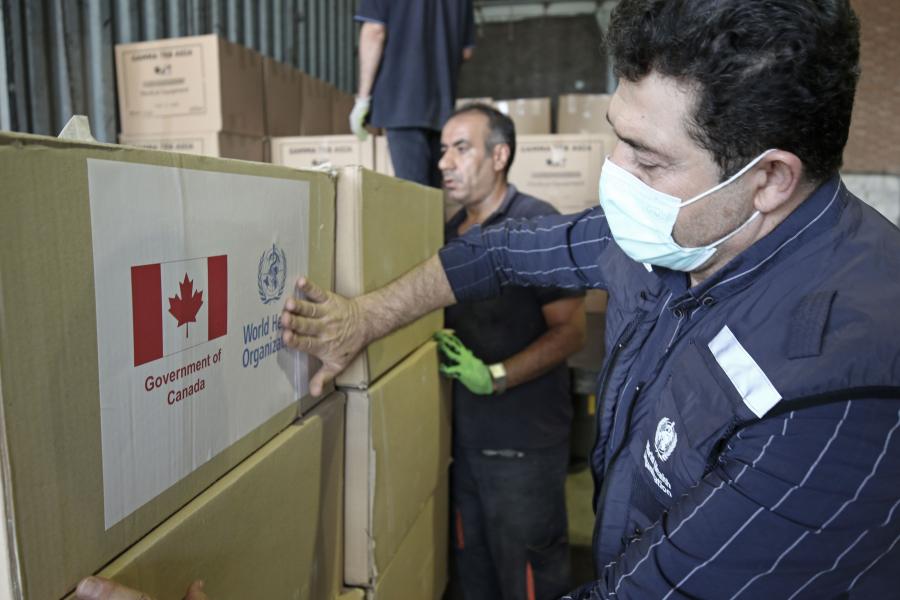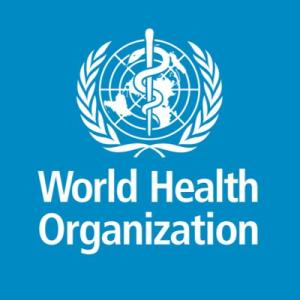Joint WHO, EU Humanitarian Aid and Canada project to improve access to inclusive health care for older persons and people living with disabilities gets one step closer to results
25 August 2022
Tehran, 21 August 2022 – With the arrival of the first shipments of equipment and supplies procured for the humanitarian project “Improving access to inclusive health care in long-term care facilities and enhancing the quality of life and dignity of the most vulnerable populations in Islamic Republic of Iran during the time of emergencies and pandemics,” the project takes another step towards achieving results.

The project, co-funded by the World Health Organization, the European Union Humanitarian Aid, and the Government of Canada, aims to support innovative activities to increase the COVID-19 response capacity of long-term care facilities, procure assistive technologies for the most vulnerable, and train caregivers in providing tailor-made services to the older persons and people living with disabilities through an online platform for research and training.
It is estimated that more than 7000 older persons and people living with disabilities in long-term care facilities will have access to improved services and better COVID-19 protection and response once the project is completed. Thirty long-term care facilities with >140 residents in 14 provinces were prioritised to receive the necessary equipment and training to establish a standard isolation room and reduce COVID-19 risks. The equipment includes air purifiers with two year’s supply of air filters (HEPA), oxygen concentrators, hospital beds, portable UV disinfection devices, autoclaves, washing machines, and one year’s supply of personal protective equipment.

In addition, at least 900 persons living with severe disabilities in urgent need of assistive technologies will be provided with regular or commode wheelchairs and antidecubitus mattresses.
WHO, project consultants and the steering committee members conducted onsite visits to select facilities to observe their readiness and develop guidelines for COVID-19 isolation, care, and risk reduction. It is expected that the remaining items and equipment will arrive in the country and be repackaged for distribution to the prioritised facilities and individuals within the next few months. Meanwhile, the project team is preparing to train the caregivers on the implementation and monitoring of the developed guidelines.





